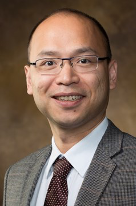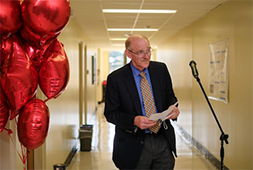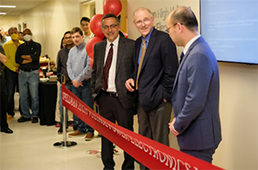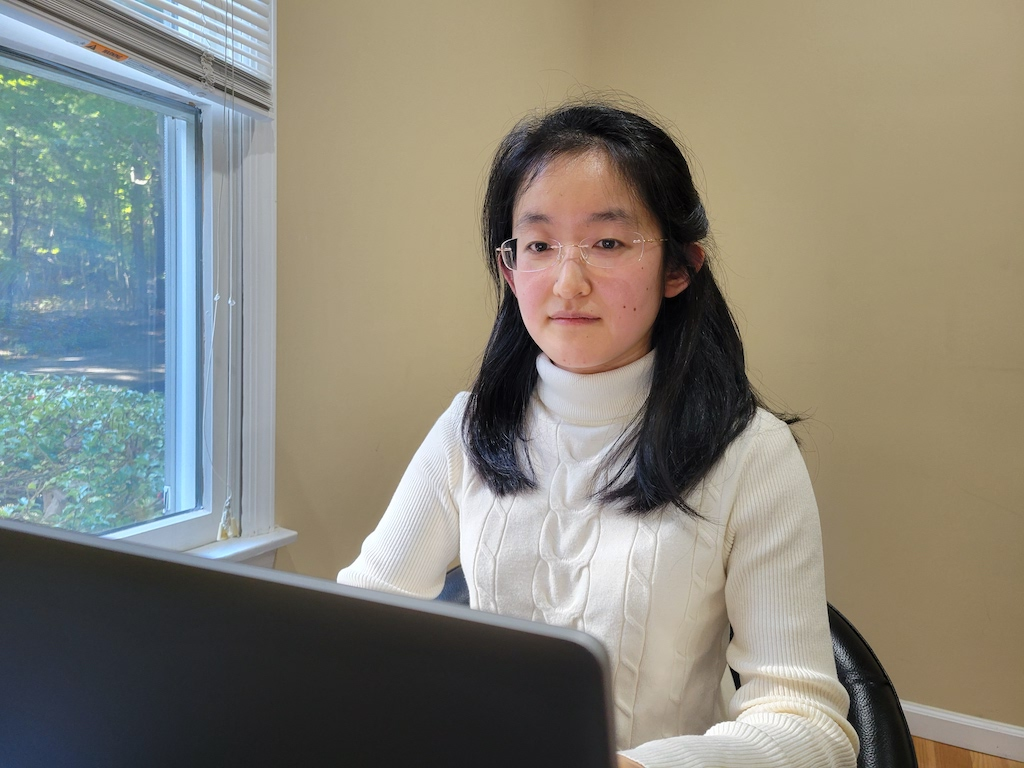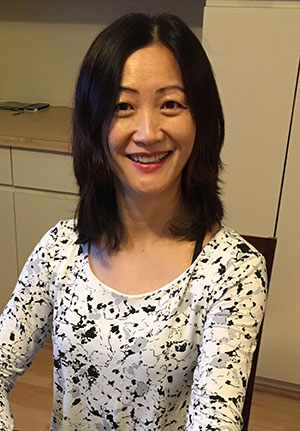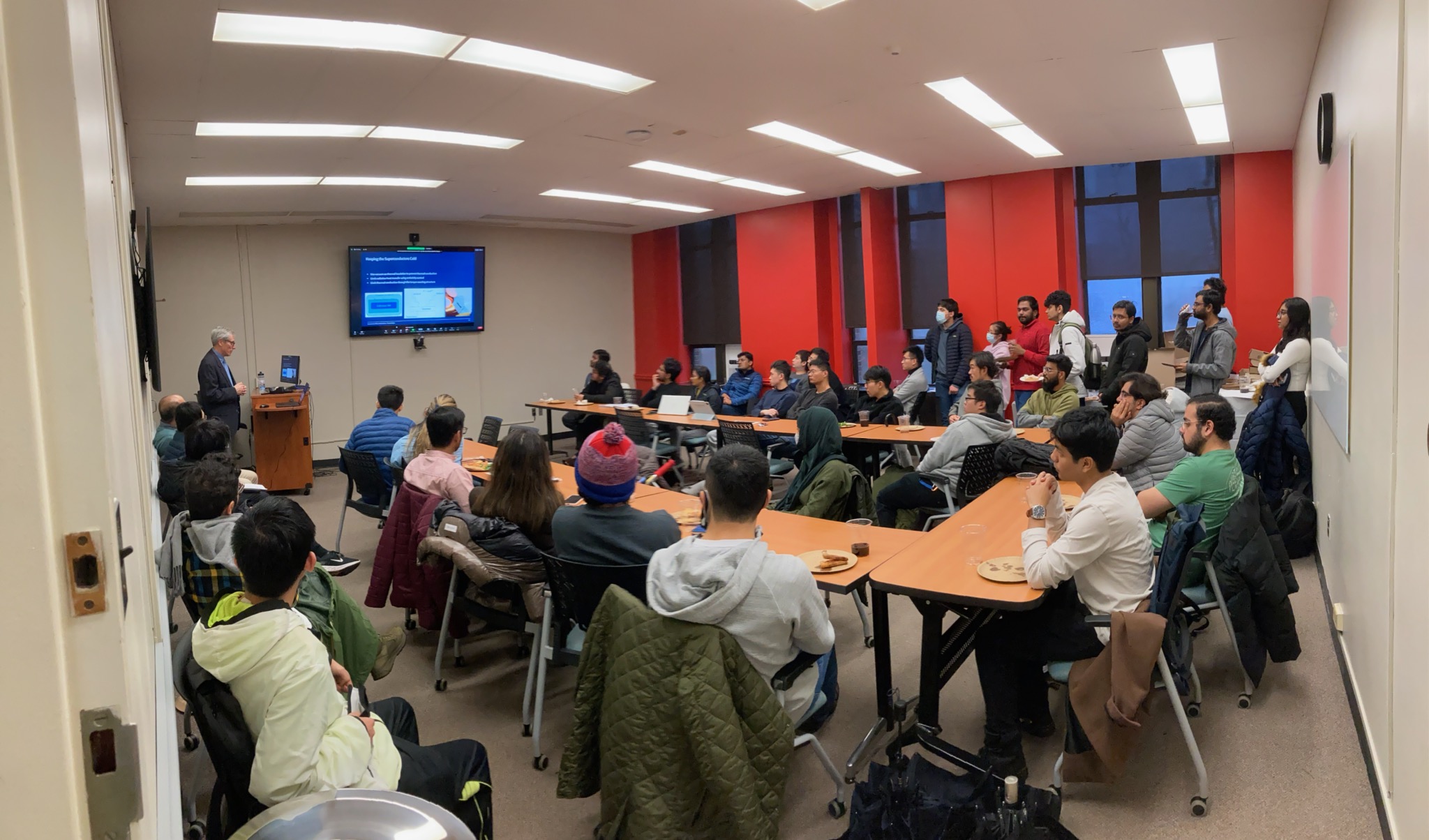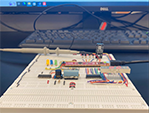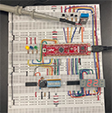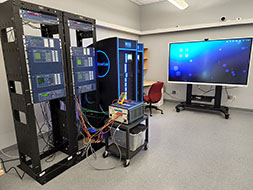2022 Newsletter
Petar M. Djuric, SUNY Distinguished Professor ECE Chair's Message The Department of Electrical and Computer Engineering (ECE) has continued to excel in 2022. The research expenditures have kept on growing, and in FY 2021 in comparison to the previous year, they have doubled and have reached $10.4M. The funding comes from various agencies, including NSF, DOD, and DOE. The department has also submitted to SUNY and the State Department of Education a new MS Program in Engineering Artificial Intelligence. This year, we have also witnessed the opening of a modern undergraduate teaching laboratory in the power electronics area made possible by a generous gift of Spellman High Voltage Electronics Corporation. The year 2022 was also marked by the opening of an Electrical and Computer Engineering Department at SUNY Korea. We continue to serve NSF actively not only by having our faculty members frequently involved in various panels but also by having them take roles of Program Directors. Prof. Yuanyuan Yang returned from NSF this year, and Prof. Leon Shterengas has just joined NSF. In 2022, the department has been rejuvenated. We have two new faces, an Assistant Professor, Yifan Zhou, and a staff member, Jenny Chen. More highlights about the department are described in the remaining part of this Newsletter. |
||||||||||||||
Plug-n-play RF-based self-calibrating indoor tracking system - Prof. Fan Ye and Zongxing Xie Research story for scalable health monitoring
Doctoral student Zongxing Xie (advised by Prof. Fan Ye) recently developed a plug-n-play RF-based self-calibrating indoor tracking system to make daily trajectory monitoring more accessible. Such trajectories can produce daily activity routines important for health status assessment to many health conditions (e.g., Alzheimer’s). Existing RF-based tracking systems require hours of intensive manual setup to calibrate the 2D/3D coordinates of sensors. Scaling the deployments to tens or hundreds of real homes incurs prohibitive manual efforts, becoming infeasible for small research teams. Mr. Xie has developed a plug-and-play system that eliminates such intensive manual efforts. A layman user can easily set it up by walking a one-minute loop. The sensors estimate their locations iteratively by minimizing residual errors between predicted and measured distances to the user. Mr. Xie has implemented a prototype that can save hours of intensive manual efforts with negligible degradation in tracking accuracy. This paves the way for large scale in home deployment and monitoring manageable by small research teams. This plug-n-play indoor trajectory tracking system can easily scale. Once receiving a mailed sensor kit package, the user only needs to mount the sensors on the walls following simple self-installation instructions. After a one-minute user walk, the sensors obtain and calibrate their locations. Then users can walk about their lives to benefit from health monitoring without further efforts (e.g, wearing devices) This work was presented at the 9th ACM International Conference on Systems for Energy-Efficient Built Environments (BuildSys 2022) and the 20th ACM Conference on Embedded Networked Sensor Systems (SenSys 2022), co-located in Boston, November, 2022. The research was funded by the National Science Foundation (NSF). |
||||||||||||||
Naval Research Grant - Prof. Yacov Shamash Navy Funds Prof. Yacov Shamash's Research to Enhance Energy Resiliency Stony Brook researchers, in collaboration with the University of Massachusetts Lowell, are investigating ways to make energy generation, storage and system operation more efficient, reliable and resilient, particularly in microgrid settings such as shore-based environments, under a new program funded by the United States Navy Office of Naval Research. The Navy grant, totals $7.36 million and is shared equally between the two institutions. Fig 1: A group of battery units collectively providing charging/discharging power while achieving state-of-charge (SoC) balancing among themselves.
Fig 2: Total charging/discharging power p_Σ collectively provided by all battery units in a group and the desired power p^*demanded from the group.
Fig 3: Balancing of the state-of-charge among all battery units as they collectively
provide the desired charging/discharging power.
As part of the ONR funded multimillion-dollar Energy Resilience Research program he
leads, Prof. Yacov Shamash developed distributed control algorithms that manage a
group of energy storage battery units. Under these algorithms, each battery unit utilizes
information it receives from its neighboring units to decide the power to charges/discharge
so as to collectively provide the total power desired from the group and to balance
the state-of-charge (SoC) among all battery units. |
||||||||||||||
Quantum Analytics for Power Systems - Prof. Peng Zhang Creating a More Resilient Energy Grid Through Artificial Intelligence The Stony Brook Power Systems Laboratory has pioneered research on Quantum-Engineered
Smart Grids (QGrid) to empower a resilient and secure ultra-scale power grid through
quantum engineering. The team has developed the first series of quantum analytics for power systems that are feasible to pursue on noisy intermediate-scale quantum (NISQ) computers and
has designed various QGrid analytics for noise-free quantum computers that may emerge
in the next decade. The team has also explored quantum networking in QGrid, This work is supported by the U.S. Department of Energy’s Office of Electricity and Stony Brook University’s Quantum Information Science and Technology seed grant. In 2022, 15 QGrid papers have been published and the paper Quantum-Enabled Distributed Unit Commitment has been selected for the Best Paper Award in the 2022 IEEE PES General Meeting.
|
||||||||||||||
Research story - Prof. Fang Luo At Spellman’s Stony Brook Lab, Everything’s Under Control Prof. Fang Luo joined the Electrical and Computer Engineering Department a short time ago and has established a very active research program on the next generation of power electronics. This effort has been greatly enhanced by Prof. Luo teaming up with the Spellman High Voltage Electronics Corp., a regional manufacturer of custom high voltage power systems. |
||||||||||||||
|
Spellman Lab New Lab Powers Research and Experiential Learning at Stony Brook
Spellman Power Electronics Lab Opens The department opened a new engineering teaching lab thanks to the generous funding from industry partner Spellman High Voltage Electronics Corporation . In a special ceremony on April 12, 2022, the Spellman Power Electronics Lab was dedicated as a facility to accelerate research and educational programs in alternative energy and power conversion systems. Hesse- Spellman forms new research alliance for power electronics packaging Hesse Mechatronics and Spellman High Voltage Power Electronics Lab forms a new research alliance for high performance power electronics module packaging through a no-cost loaner program including a Hesse BJ 653 wirebonder and a Hesse Smart Welder SW1185. Advanced power module provides the bridge between the power devices and its applications, while the module design has a strong impact on the semiconductor real-world in-circuit performances. Power electronics packaging serves an important step in power semiconductor industry. With the support from Hesse, Spellman High Voltage Power Electronics Lab can provide full capability for advanced packaging solutions, from design to validation, to advanced Wide Bandgap (SiC/GaN) and Ultra-Wide Bandgap (Ga2O3 and Diamond) Power electronics systems. Spellman HV PE lab is also well supported by ANYSYS, and in broader collaborations with U.S. DOE, Sandia National Lab, Office of Naval Research, APEX Microtechnology, etc., in the field of advanced power module packaging research. It is expected that the lab can serve as an unique elite research asset in the nation’s CHIP Acts effort and cover the research needs in the north-east region as well as the country. A foundational research focus for students and faculty in the College of Engineering and Applied Sciences (CEAS) includes alternative energy and power conversion systems such as wind power generators, fuel cells, hybrid electric vehicles and all-electric ships and aircraft propulsion systems. The new lab offers students the hands-on experiential training that will give them a competitive edge for internships, graduate school, future jobs and purposeful careers. ECE Department - SUNY Korea SUNY Korea is a partnership between Stony Brook University and the South Korean government. It was approved by the Ministry of Education, Science and Technology in South Korea in 2012, and it is the first American university established in Korea. As of 2022, SUNY Korea will also offer a Stony Brook degree in electrical and computer engineering. This department in Korea is mirroring the ECE Department at Stony Brook University. New MS Program in Engineering Artificial Intelligence The ECE Department has proposed to SUNY and the NY State Department of Education a new MS Program in Engineering Artificial Intelligence. This program aims at providing interdisciplinary foundations and practical experience in algorithms, sensors, hardware, control, and applications. The program is of comprehensive nature, and it allows students to specialize in any subfield of artificial intelligence. The students will study a wide range of real world problems, many of which go beyond just algorithms and software. Awards/recognitions Prof. Yuanyuan Yang was elevated to the grade of Follow of the National Academy of Inventors, and she received the Outstanding Service Award by the IEEE Computer Society Technical Committee on Distributed Processing (TCDP). Prof. Shan Lin received the Best Paper Award at the 20th International Conference on Formal Modeling and Analysis of Timed Systems (FORMATS) 2022, and Prof. Djuric was Elected a foreign member of the Serbian Academy of Engineering Sciences. |
||||||||||||||
Researcher on Future Power Technology joins ECE Dept.: Prof. Yifan Zhou Prof. Yifan Zhou joined the Stony Brook ECE faculty as an assistant professor this past September. Prior to this, she was a postdoc in the ECE department at Stony Brook, working with Prof. Peng Zhang. She received her Bachelor's degree with the highest distinction in 2014 and her Ph.D. degree in 2019, both from the Department of Electrical Engineering at Tsinghua University in China, a world-wide top university. Her research focuses on learning-based, verifiable smart grids, which collaboratively integrates (1) machine learning, (2) quantum computing, and (3) formal verification for enabling intelligent, resilient, adaptive, and secured power system operations and supporting extreme renewable energy integration. |
||||||||||||||
Instructional Support Specialist – Jenny Chen New staff member, Jenny Chen was a data analyst with MS and BS in Applied Math-Statistics, and was a freelance position at Estee Lauder. She earned MS and BS at Stony Brook University. At Estee Lauder, she analyzed customer daily backorder report, planned online ecommerce’s promotion events, performed stock balance transfers, and forecasting warehouse projection. At Stony Brook University, she will conduct technical evaluations of hardware equipment and software, deploy code, troubleshoot and fix problems, maintain networks, and coordinate with faculty, students, and staff. She will assist with department website, electronic newsletter, and other electonic communications. |
||||||||||||||
GE Research Provides Industry Insight David Torrey a senior Principal Engineer at GE Research, on Superconducting Generators for Offshore Wind Turbines. Students learned about wind turbines, cost of energy, permanent generators and how these generators are controlled through converters. |
||||||||||||||
|

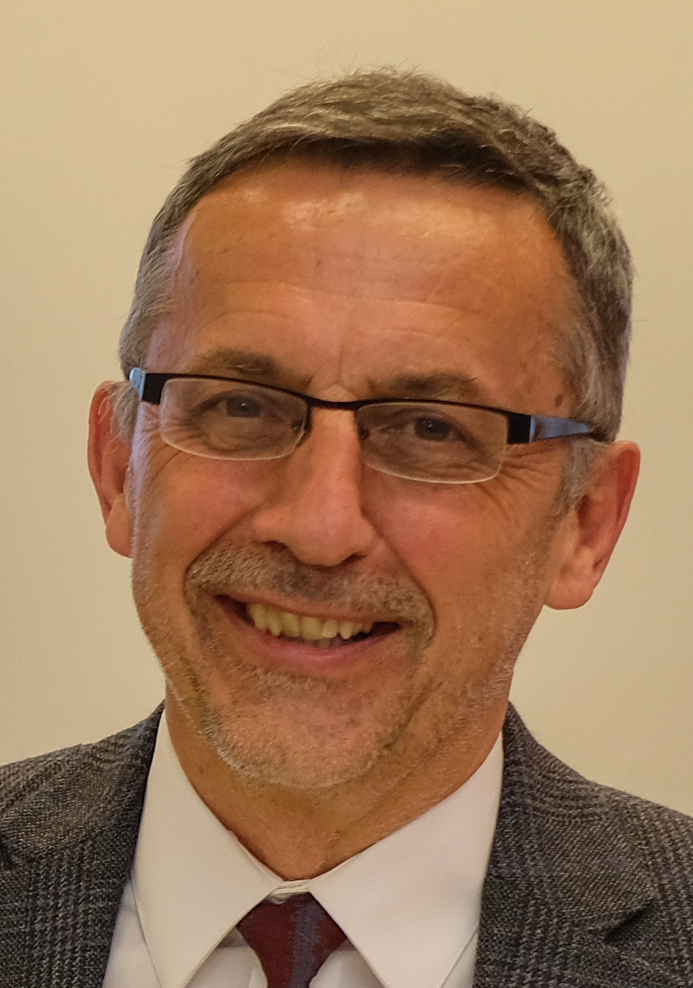
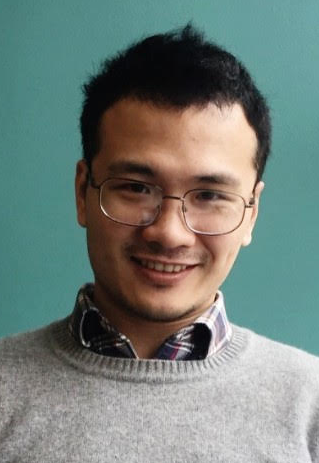
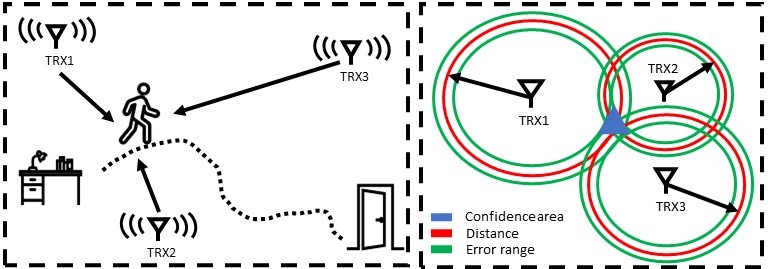
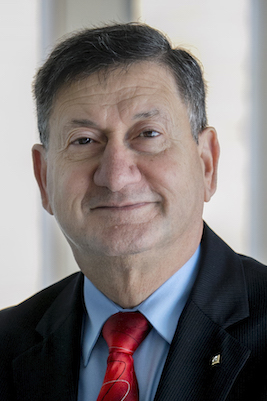
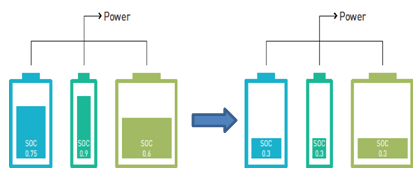
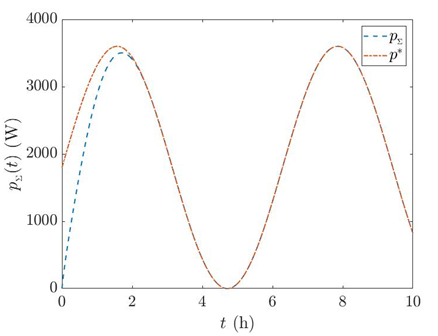
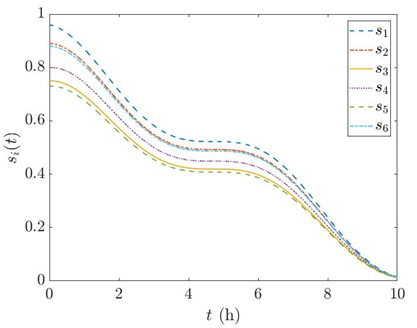
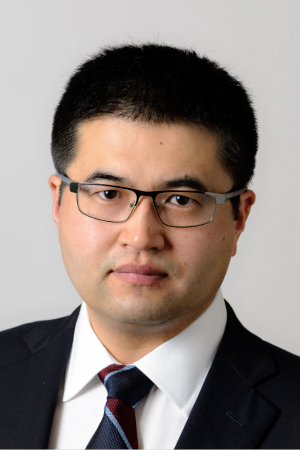
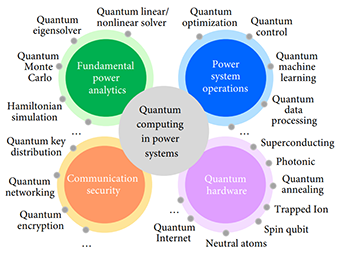 which provides a level of security for key distribution that is unattainable through
classical cyber systems. By integrating quantum computing and quantum security into
QGrid, we envision forming scalable, self-protecting, autonomic, and unprecedentedly
cybersecured power grids capable of coordinating gigantic distributed energy systems
and fostering future resilient communities and smart cities.
which provides a level of security for key distribution that is unattainable through
classical cyber systems. By integrating quantum computing and quantum security into
QGrid, we envision forming scalable, self-protecting, autonomic, and unprecedentedly
cybersecured power grids capable of coordinating gigantic distributed energy systems
and fostering future resilient communities and smart cities.